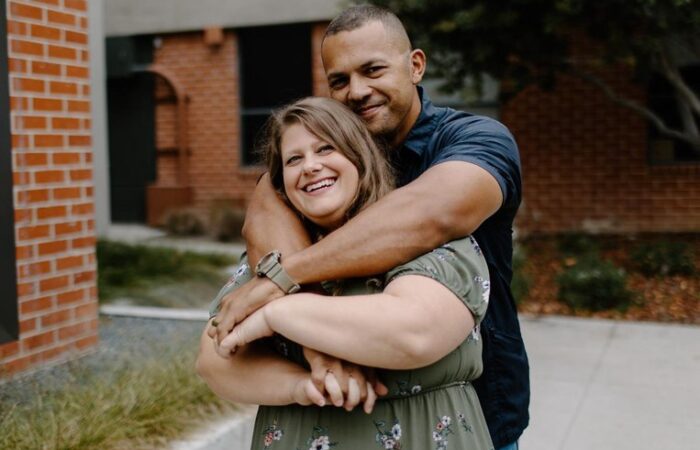
In recent years, polyamory—the practice of engaging in consensual, ethical non-monogamy—has gained increasing visibility and acceptance. More people are questioning traditional ideas about relationships, recognizing that love and intimacy can take many different forms. But is polyamory right for you? For some, the idea of multiple romantic partners is liberating and fulfilling. For others, it may feel confusing or even overwhelming. Understanding polyamory, its dynamics, and how it might fit into your life is an essential step before diving in. Here’s a closer look at polyamory and how to decide whether it’s the right choice for you.
1. Understanding Polyamory: More Than Just “Open Relationships”
Polyamory differs from traditional monogamy in that it allows individuals to have romantic or sexual relationships with more than one partner, all with mutual consent and transparency. Unlike an “open relationship,” where partners may allow for sexual encounters outside the relationship, polyamory typically involves deep emotional connections with multiple people.
Polyamorous relationships can take a variety of forms—some people have multiple primary partners, while others may have one main partner and a few secondary ones. The key is that everyone involved is aware of and agrees to the arrangement. Communication, honesty, and respect for boundaries are fundamental to making polyamory work.
2. Assessing Your Feelings About Monogamy
Before diving into polyamory, it’s crucial to explore how you feel about traditional monogamy. Are you comfortable with the idea of a committed, long-term relationship with one person, or have you felt restricted by the notion of exclusivity?
Polyamory may be appealing if you find that your emotional and sexual needs can’t be fulfilled by a single partner or if you struggle with the societal pressure of monogamous relationships. Some people are naturally inclined to want multiple connections, and polyamory allows them to pursue that desire in a healthy, consensual way.
However, if you have a deep attachment to the idea of exclusive partnerships or feel discomfort with the idea of sharing your partner’s time and affection, polyamory may feel unsettling, at least at first. It’s important to recognize and honor your own needs before considering polyamory.
3. Honest Self-Reflection: What Are You Seeking?
Polyamory can offer a variety of benefits, but it’s not a one-size-fits-all solution. For some, polyamory provides an outlet for exploring different kinds of love and intimacy—emotional connections with multiple people, sexual exploration, or the fulfillment of different needs that one partner alone may not be able to meet.
Ask yourself: What are you looking for in your relationships? Are you interested in fostering deep connections with multiple people? Do you have a desire to experience different kinds of intimacy—whether emotional, physical, or intellectual—that cannot be met by one person?
For others, polyamory might stem from a desire for autonomy or the need to explore different types of romantic dynamics. Understanding your motivations and what you hope to gain (or give) from polyamory is crucial in determining whether it aligns with your values and desires.
4. Communication Skills and Emotional Resilience
At its core, polyamory requires excellent communication skills. You must be able to openly and honestly express your feelings, desires, and boundaries with multiple people. This means being able to negotiate time, emotional investments, and expectations in a way that is transparent and fair to all parties involved.
Polyamory also demands emotional resilience. It can be difficult to manage feelings like jealousy, insecurity, or fear of abandonment. Since polyamory allows for multiple intimate connections, these emotions may arise more frequently. Can you communicate your feelings effectively and manage your emotions in a way that benefits everyone involved?
If you’re someone who struggles with difficult conversations, setting boundaries, or confronting uncomfortable feelings, polyamory may pose a challenge. However, it’s also an opportunity for growth. Many polyamorous individuals find that their emotional intelligence and communication skills are enhanced over time as they navigate their relationships.
5. Time Management and Energy Investment
Polyamory requires time, attention, and energy. Juggling multiple relationships—whether romantic or platonic—can be demanding. You may need to manage different schedules, emotional needs, and expectations. If you’re already struggling with time management in your life, adding multiple romantic connections could feel overwhelming.
Consider whether you have the emotional and physical energy to devote to multiple partners. Are you willing to allocate time for each relationship, ensuring that no one feels neglected or undervalued? Balancing multiple relationships requires careful planning and flexibility.
On the flip side, some people find that polyamory offers the opportunity to cultivate relationships at different levels. For example, one partner may be more focused on intellectual connection, while another might fulfill emotional or physical needs. This division of labor can offer more satisfaction than relying on one person to meet all your needs.
6. Jealousy and Compersion: Navigating Complex Emotions
Jealousy is one of the most common concerns people have when considering polyamory. It’s natural to feel possessive or protective of someone you care about, and the idea of sharing them with others can be difficult to accept. However, in a polyamorous framework, jealousy is often seen as an opportunity for self-reflection and growth.
Many polyamorous people strive to cultivate compersion—the opposite of jealousy. Compersion is the ability to feel joy when your partner is happy with someone else. It’s about embracing the idea that love is not finite and that your partner’s emotional connections with others can be a positive, enriching experience.
Before diving into polyamory, reflect on how you handle jealousy. Are you able to manage these feelings constructively, or would you need time and support to work through them? Recognizing your emotional limits will help you decide if polyamory is a healthy option.
7. Setting Boundaries and Expectations
Clear boundaries are essential in any relationship, but they become even more critical in polyamory, where multiple emotional dynamics are at play. This includes boundaries around time, intimacy, emotional support, and sexual health. Before exploring polyamory, have honest conversations with your current partner(s) about what you both want and need from the relationship.
What are the boundaries around intimacy? How will you handle new relationships that arise? Are there specific agreements regarding sexual health and protection? Discuss these topics openly and establish clear, mutual expectations to prevent misunderstandings or hurt feelings.
Having an open, flexible approach to boundaries—while respecting your partner’s needs—can create a sense of security and comfort for everyone involved.
8. Do You Have the Support System You Need?
Entering a polyamorous relationship can be isolating, especially if you’re not in a community that understands or supports this lifestyle. Having a strong support system is key to navigating the challenges that come with polyamory.
Do you have friends or mentors who are experienced with polyamory and can offer advice or guidance? Is there a polyamorous community you can turn to for support? If you’re feeling unsure, consider reaching out to people who have been practicing polyamory for a while. Their perspectives can provide valuable insights.
9. A Relationship Style, Not a Cure-All
Polyamory is not a cure-all for relationship dissatisfaction or a quick fix for personal or relational issues. It’s not about seeking to “fix” something that’s broken in a primary relationship. If you’re struggling with issues like communication or trust, these problems may become more pronounced in a polyamorous arrangement unless they are addressed first.
Polyamory should be approached with the intention of creating fulfilling, mutually respectful relationships, not as an escape from problems or dissatisfaction. Consider whether you are entering polyamory for the right reasons or if it might be a way to avoid difficult issues in your current relationship.
Conclusion: Is Polyamory Right for You?
Ultimately, the decision to explore polyamory is deeply personal and should be approached with thoughtfulness, self-reflection, and open communication. It can offer deep rewards—such as diverse relationships, personal growth, and emotional fulfillment—but it’s not without its challenges. The key is to be honest with yourself about your desires, emotional needs, and capacity for managing complex relationships.
Take the time to explore what polyamory means for you, and approach it with patience, honesty, and a willingness to grow. If you’re ready to embrace this relationship style, it could be a fulfilling and enriching journey. If not, that’s perfectly okay too—what matters most is finding a relationship dynamic that aligns with your values and brings you happiness.
Tags:
Subscribe To Get Update Latest Blog Post
No Credit Card Required



